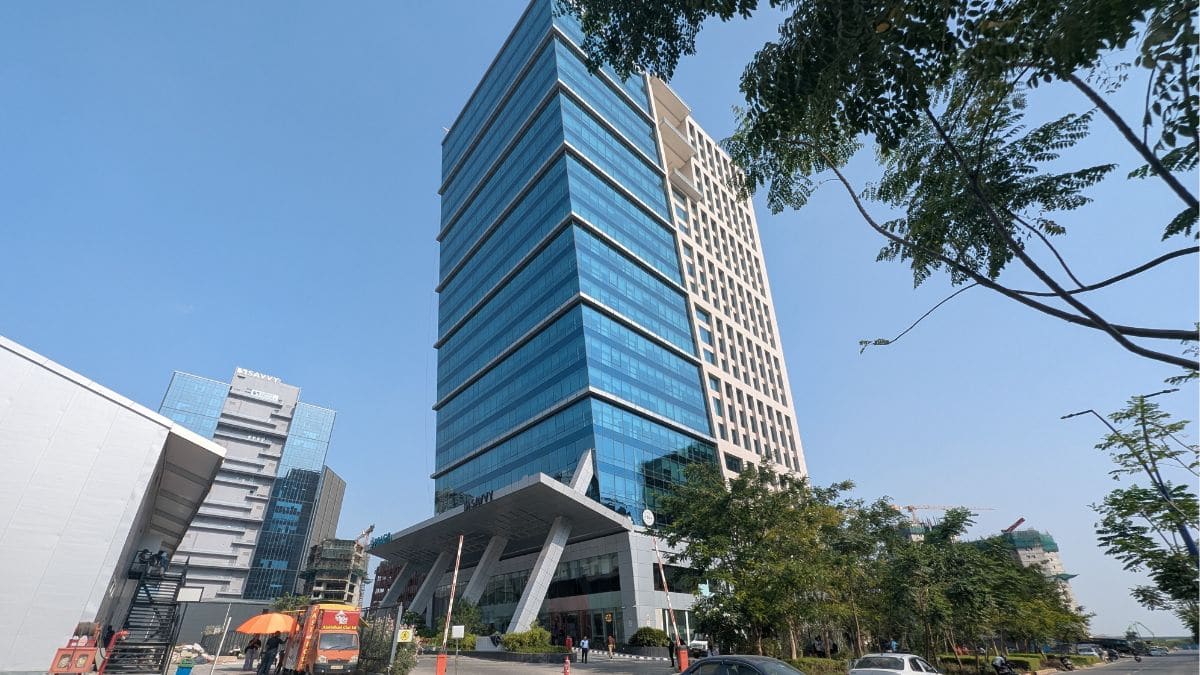Who are the people overseeing GIFT City’s foreign university campuses?
Sheena Sachdeva | July 12, 2025 | 09:11 PM IST | 4 mins read
GIFT City Gujarat campuses have a financial regulator to oversee their operations. The IFSCA monitors through panels of experts from IIT Gandhinagar, ISB Hyderabad, GTU Ahmedabad, PDEU Gandhinagar.

GANDHINAGAR: Set up on the National Highway 48 connecting Ahmedabad and Gandhinagar – also a part of Delhi-Mumbai Industrial Corridor – Gujarat International Fin-Tech (GIFT) City’s original goal was purely commercial. It was meant to allow foreign and Indian companies to do business in foreign currencies on Indian soil, otherwise prohibited by the Foreign Exchange Management Act.
It was inspired by the Singapore Financial Service Centre, which current prime minister and former Gujarat chief minister, Narendra Modi, visited in 2003- 04. GIFT City was first planned in 2007 and set up in 2014. For over a decade, first in concept and later in action, it remained just a financial hub, easing business in finance, insurance, exports and more, with the blessings of their respective regulators.
To provide a single regulator for all activities within GIFT City the International Financial Services Centres Act was passed in 2019. It underpins the International Financial Services Centres Authority which, to the exclusion of every other agency or watchdog, is the single body responsible for all activities within GIFT City, from sanitation to higher education. For the latter, it appoints committees to grant approvals.
This is the final of a three-part series on the first foreign universities to set up campuses in India, in GIFT City Gujarat. The University of Wollongong and Deakin University are set to be joined by more in 2026. The first part looked into how the two Australian universities in GIFT City were shaping up and the second is on the experiences of Deakin and UoW students.
GIFT City’s ‘committee of experts’
The first committee of experts was set up in 2023 to formulate a policy for international universities and clear their courses.
Led by the former vice-chancellor of Banaras Hindu University, Sudhir Jain, it included Rajat Moona , director, Indian Institute of Technology Gandhinagar and Pramath Raj Sinha, founding dean, Indian School of Business (ISB) Hyderabad and founder trustee, Ashoka University.
Once Jain’s tenure at BHU ended, the committee was reconstituted in late 2024.
It is now led by Moona and has two new members, S Sundar Manoharan, professor, School of Energy and Technology, Pandit Deendayal Energy University and Rajul K Gajjar, vice chancellor, Gujarat Technological University, added the official.
He stated: “The previous committee oversaw all the new universities approved to set-up their campus in the GIFT city and the new committee will look after the next new universities.”
GIFT City Jobs: Finding workforce
GIFT City ventured into education only when they were unable to find workers for the companies operating in it, said an official asking not to be named. “IFSCA’s main purpose was not to bring foreign universities into the city but to get more financial and technology services companies into GIFT,” another official said.
Due to the shortage of workers, the developers and regulators were pushed to “look into the alternatives”.
On visits to the Dubai Knowledge Corridor and other financial services centres, officials noticed how educational partners and university centres play a major role in bringing students into the business centres which, in turn, are getting employees ready for the sector.
“That's when the officials realised that foreign universities are also necessary here,” said the official.
As the first and second parts of this series on GIFT City showed, universities are offering courses focussed on the GIFT City companies which include IBM, Cognizant, Bank of America and many others. Courses offered are limited to technology, science, engineering, mathematics and fintech. “Universities offering courses in these subject areas are allowed to set-up their campuses at GIFT City,” added the official.
IFSCA: Regulating education
Of the 886 acres of GIFT City, the special economic zone (SEZ), International Financial Services Centre, occupies 246 acres. Any entity established in this zone is considered a non-resident and the FEMA Act is not applicable to them. Hence, all transactions at the foreign universities are in US dollars, said the officials
Furthermore, there are tax benefits. Companies or universities set up under the IFSCA are exempt from the Goods and Services Tax (GST), customs and other levies for the first 10 years.
Nimay Kalyani, country director, University of Wollongong, shared that the primary objective of IFSCA is that they are the regulators of all the entities over here. “For each of the companies present in the GIFT like fund management companies, banking sector, insurance sector, asset management companies, and many others, there's one point of contact for everyone, including foreign universities. Outside the SEZ, you have to liaison with four to five different entities but within the SEZ, IFSCA is the only authority.”
Follow us for the latest education news on colleges and universities, admission, courses, exams, research, education policies, study abroad and more..
To get in touch, write to us at news@careers360.com.
Next Story
]CENTAC Puducherry’s NEET counselling rules ‘discriminatory’; Doctors with Disabilities demand revision
The CENTAC Puducherry 2025 guidelines for admission to Pondicherry medical colleges contain instructions on photographs, disability certificates and other factors that, the doctors’ group says, violate central laws and SC judgments
Musab Qazi